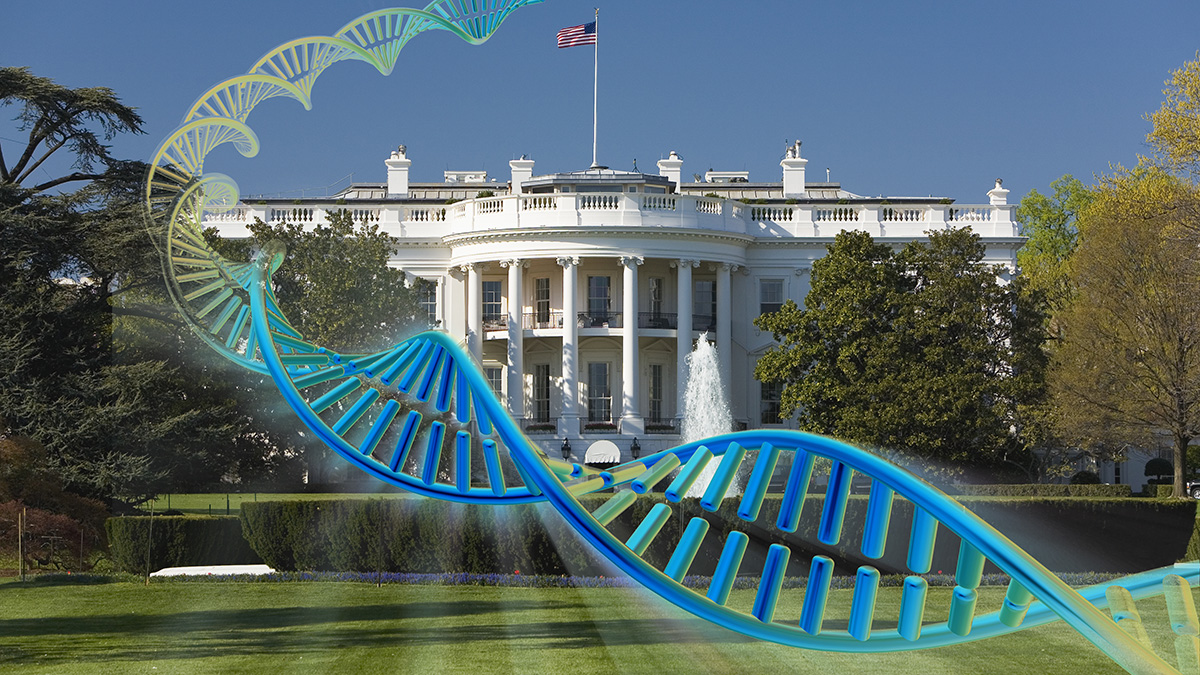Each new presidential administration appoints thousands of new people to political positions inside the new government. The Biden administration has been busy recruiting and vetting candidates for various positions, some of which will advise the president on matters related to science.
Francis Collins, M.D., Ph.D., will continue in his role as National Institutes of Health (NIH) director, a position that he has held since 2009. Prior to that position Dr. Collins was NHGRI director from 1993-2008; meanwhile, he continues to lead his own vibrant research group within the NHGRI Intramural Research Program. He is a physician-geneticist noted for his landmark discoveries of disease genes and his leadership of the international Human Genome Project. Dr. Collins is the only presidentially appointed NIH director to serve in more than one administration.
Eric Lander, D.Phil., has been nominated as President Biden’s science advisor and director of the White House Office of Science and Technology Policy (OSTP). President Biden is elevating the role of science within his administration by designating the presidential science advisor as a member of the cabinet for the first time in history. Dr. Lander is president and founding director of the Broad Institute of MIT and Harvard. He was a principal leader of the international Human Genome Project and a long-time NHGRI grantee.
Alondra Nelson, Ph.D., will serve as OSTP deputy director for science and society. A scholar of science, technology, medicine, and social inequality, Dr. Nelson is the Harold F. Linder Professor at the Institute for Advanced Study, an independent research center in Princeton, New Jersey. Dr. Nelson is a former member of the NHGRI Genomics and Society Working Group of the National Advisory Council for Human Genome Research (NACHGR). She will be the first person in this OSTP role, which brings social science expertise explicitly into the work of federal science and technology strategy and policy.
A number of NIH staff are joining OSTP to work with these leaders, either on an interim or longer-term basis. Among them are NIH Associate Deputy Director Tara Schwetz, Ph.D., and NIH Associate Director for Science Policy Carrie Wolinetz, Ph.D. Congress established OSTP in 1976 to advise the president on the scientific, engineering, and technological aspects of the economy, national security, homeland security, health, foreign relations, and the environment. NHGRI Senior Investigator Julie Segre, Ph.D., has been named assistant director of health and life sciences at OSTP to work on pandemic preparedness, amongst other areas.
Earlier this year, the Biden administration demonstrated a genuine interest in NIH and its mission, with several prominent people visiting NIH (in person or virtually) within a few weeks of the inauguration. On January 26, Vice President Kamala Harris and Second Gentleman Doug Emhoff came to the NIH to talk with researchers and to receive second doses of the Moderna COVID-19 vaccine at the NIH Clinical Center. On February 3, First Lady Jill Biden, Ph.D., paid a virtual visit to NIH on the eve of World Cancer Day to discuss recent advances in fighting cancer. On February 11, President Joe Biden came to NIH to tour the Vaccine Research Center, learn about recent NIH progress against COVID-19, and give a speech about the current situation with the COVID-19 pandemic.
Both President Biden and First Lady Jill Biden have previously shown that promoting cancer research is a top priority, establishing the Beau Biden Cancer Moonshot (a federal program launched in 2016 to increase the pace of cancer discovery) and the Biden Cancer Initiative (a private charity formed in 2017 to increase collaboration between companies and organizations conducting relevant research).
With such strong connections to NIH, genomics, and scientific research, the Biden administration seems poised to foster a productive era for biomedical discoveries.
Source: White House, NIH

